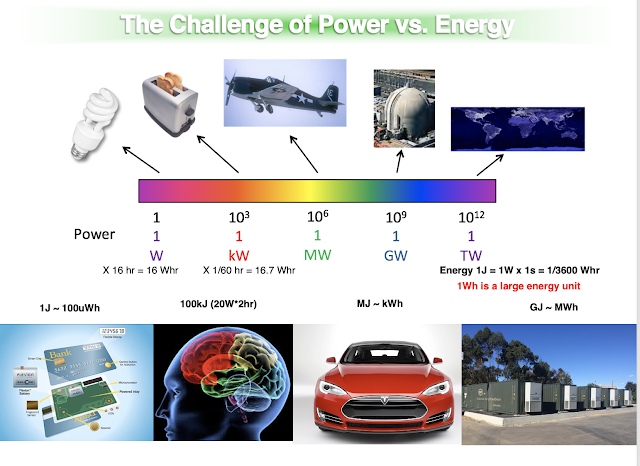Power vs Energy - How much kW and kWh we need each day?

This week, I have an important task to teach my son and his best friend (both are 10 years old) to differentiate the concepts of Energy and Power. After two hours - I realized how difficult it is to explain the concepts clearly to them. They seem to vaguely understand what it means to be "Powerful" and "Energetic", nevertheless, both have trouble differentiating the two. I kept saying Power (W) equals to Energy (Ws a.k.a. Watt Second) divided by Time (s) - but neither kids have learnt algebra ! So I said "A sprinter runs 100m with a lot of power in 10 seconds, a marathon runner runs 42km with much lower power in 2.5 hours, even though the sprinter is "powerful" the marathon runner needs much more energy to finish the trip." Finally the two adorable boys nodded their heads and smiled. We scientists and engineers invented so many different units that most of the populations do not use - Wh = 3600 Ws = 3600 J , do you know that in USA, average ho...
